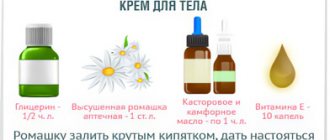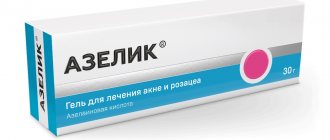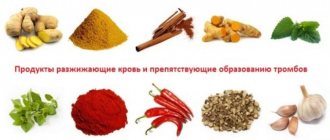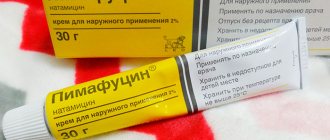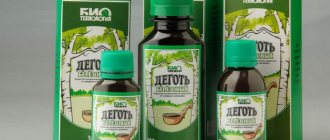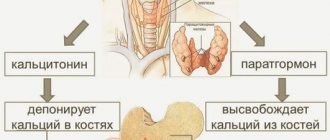Manufacturer: Clinic of the Institute of Bioregulation and Gerontology (Russia)
Active ingredients
- Not indicated. See instructions
Pharmacological action
- Not indicated. See instructions
- Description of the pharmacological action of Tyramine
- Composition Tyramine
- Indications for use of the drug Tyramine
- Release form of the drug Tyramine
- Method of administration and dosage of the drug Tyramine
- Storage conditions for the drug Tyramine
- Shelf life of the drug Tyramine
What is tyramine in food
Tyramine is a substance that is formed as a result of the breakdown of tyrosine. When it enters the body, the adrenal glands release catecholamines into the blood. They, in turn, promote the production of epinephrine, dopamine and norepinephrine. These hormones stimulate energy release. It is accompanied by increased heart rate and increased blood pressure.
The level of tyramine in some foods may vary depending on how long they are stored and how they are prepared. The substance carries not only benefits, but also harm. Its highest concentration is found in food that has expired. Therefore, it is extremely important to learn how to properly consume foods containing the substance. Doctors recommend introducing them into the diet if there is an urgent need to lose weight and to restore energy reserves.
Blue cheese is eaten in small slices in limited quantities.
A lack of tyramine in the body can cause a number of unpleasant symptoms. These include depressive disorders and memory impairment. At the same time, metabolic disorders are observed. It is accompanied by uncontrolled weight gain with associated pathologies.
Attention! The accumulation of tyramine in the body in excessive amounts can be caused by hypothermia or overheating.
Efficiency
The effect of the drug was studied in patients who were diagnosed with hypothyroidism (primary type). According to the results, atro- and hypophytic changes in the thyroid gland were identified. The effectiveness of the drug is based on changes in subjective complaints of patients, as well as taking into account numerous studies. In addition, the level of thyroid hormones was studied.
As a result, it was found that a course of taking Tyramine reduces the symptomatic manifestations of the pathology (84% of all cases), the maximum effect is observed in older patients who have atrophic disorders in the gland.
After taking Tyramine, patients noted a decrease in the strength and frequency of headaches, and normalization of ECG parameters. Stabilization of thyroid hormones was diagnosed, the level of which came into line with normal values. This indicates a stabilizing effect of the drug on cellular metabolism occurring in the thyroid gland, as well as the normalization of many processes in the body.
The benefits of foods rich in tyramine
Foods containing tyramine are very beneficial for the thyroid gland. By regulating the functioning of the endocrine system, it restores metabolism, which is very important when losing weight. It is also believed that tyramine can improve mood by increasing endorphins in the blood. The beneficial properties of products containing it include:
- participation in the process of breaking down fatty foods;
- stimulation of metabolism;
- supplying the body with energy;
- vasoconstrictor effect;
- regulation of insulin levels.
Tyramine
Active substance:
Pharmgroup:
Dietary supplements. proteins, amino acids and their derivatives
Average price in pharmacies
| Name | Manufacturer | average price |
| Tyramine n20x2 tablet p/o | GEROPHARM | 565.00 |
Application area:Hormonal deficiency of the thyroid gland due to iodine deficiency in the body Iodine deficiency Endemic goiter Iodine deficiency nutritional state Iodine deficiency disease Iodine deficiency Iodine deficiency state Endemic cretinism Iodine deficiency |
Harmful foods containing tyramine
If consumed in excess, tyramine is harmful to health and well-being. There is a high likelihood of headaches. If you use products together with treatment with MAO inhibitors, the risk of intracranial bleeding increases. When combined with antidepressants, they increase the likelihood of developing a stroke. In addition, tyramine is a toxic substance. Therefore, its overdose can provoke the following symptoms:
- general weakness;
- arrhythmia;
- increased heart rate;
- increased blood pressure;
- vomiting and nausea.
After eliminating foods with tyramine from the diet, the state of health stabilizes. But this takes several days.
Where is tyramine found?
The source of tyramine is fatty and canned foods. In fruits and vegetables it is formed during the process of overripening. Fermented milk products are also rich in the substance. Its small concentration is found in blue cheeses. The older the cheese, the more tyramine it will contain.
The list of foods containing tyramine is as follows:
We recommend reading: Useful properties and contraindications of avocados
- chocolate;
- avocado;
- coffee;
- alcoholic drinks;
- nuts;
- legumes;
- onion;
- home canning;
- soy;
- dairy products;
- seafood;
- smoked meats
Contraindications to products containing tyramine
The benefits of products with tyramine are highly controversial. Under certain circumstances, they pose a health hazard and make you feel worse. To prevent this from happening, you need to carefully study the list of contraindications. These include the following:
- individual intolerance;
- endocrinological diseases;
- alcohol addiction;
- treatment with antidepressants.
Tyramine can act as a powerful histamine. Sometimes its entry into the body provokes allergies. If it occurs, you should work on changing your diet. Allergies are accompanied by symptoms of poisoning or skin rashes.
Similar contraindications apply to tablets with tyramine.
Table of tyramine content in foods
To understand which foods can be eaten in large quantities and which cannot, it is advisable to familiarize yourself with the amount of tyramine in it. The most accurate content of the substance in food products is shown in the table:
Recommended reading: Benefits of plums for the body
| Grocery list | Tyramine content |
| French cheeses | From 20 to 225 |
| Brewer's yeast | 1500 |
| Pickled herring | 3030 |
| Beer | 1,8-4,4 |
| Guilt | 0,4-25,4 |
| red plum | 6 |
| Avocado | 29 |
| Potato | 1 |
| Spinach | 1 |
We recommend reading: Potatoes: beneficial properties and contraindications
Important! Most often, allergies and migraines are triggered by chocolate.
Best before date
36 months
Vitamins with similar effects
- St. John's wort-Hypericum-Artlife (Capsule)
- Green Magic (Capsule)
- Immun44 syrup (Syrup)
- IMMUNOSTART Life formula (Lozenges)
- Yogi Ginseng Vitality (Herbal tea)
- Yogi-T Bedtime (Herbal tea)
- Yogi-T Womens Moon Cycle (Herbal tea)
The description of vitamin Tyramine is intended for informational purposes only. Before starting to use any drug, it is recommended to consult a doctor and read the instructions for use. For more complete information, please refer to the manufacturer's instructions. Do not self-medicate; EUROLAB is not responsible for the consequences caused by the use of information posted on the portal. Any information on the project does not replace consultation with a specialist and cannot be a guarantee of the positive effect of the drug you use. The opinions of EUROLAB portal users may not coincide with the opinions of the site Administration.
Are you interested in Vitamin Tyramine? Do you want to know more detailed information or do you need a doctor's examination? Or do you need an inspection? You can make an appointment with a doctor - the Euro lab is always at your service! The best doctors will examine you, advise you, provide the necessary assistance and make a diagnosis. You can also call a doctor at home . Euro lab clinic is open for you around the clock.
Attention! The information presented in the vitamins and dietary supplements section is intended for informational purposes and should not be a basis for self-medication. Some of the drugs have a number of contraindications. Patients need to consult a specialist!
If you are interested in any other vitamins, vitamin-mineral complexes or dietary supplements, their descriptions and instructions for use, their analogues, information about the composition and form of release, indications for use and side effects, methods of use, dosages and contraindications, notes about the prescription of the drug for children, newborns and pregnant women, price and consumer reviews, or you have any other questions and suggestions - write to us, we will definitely try to help you.
Rules for consuming foods with tyramine
Tyramine is found in many common foods. It is very difficult to control their consumption. The need for this arises only when there is an excess of the substance in the body. To prevent unwanted consequences, it is enough to follow the general principles of eating food with tyramine. They are as follows:
- avoiding starvation by eating nutritious snacks;
- eating small portions;
- increasing the number of snacks up to 5 times a day;
- drinking enough water;
- preventing overeating.
Products containing tyramine should be consumed in limited quantities. The substance can provoke a sharp decrease in serotonin in the blood, which can lead to headaches and poor health. Particular attention should be paid to foods and drinks with high levels of the controversial substance. For example, it is not recommended to drink coffee more than once a day. Stale canned and smoked products should be completely abandoned. In them, the substance becomes hazardous to health.
Comment! The substance is especially useful for people actively involved in sports.
Useful tips
If migraines occur with long-term consumption of foods containing tyramine, it is necessary to radically change your diet. Peanuts are considered one of the richest sources of the substance. When using it, you need to take special care. Sometimes discomfort after tyramine enters the body occurs due to dehydration. If there is an excess of it in the body, the following products are introduced into the diet:
- natural juices;
- flour products;
- pumpkin seeds;
- potato;
- cherry;
- low-fat soups;
- sesame;
- pasta and cereals.
Products containing tyramine can be replaced with medications. They are taken for disorders of the thyroid gland. In some cases, a biological supplement is used for weight loss purposes. Before using medications with tyramine, you should consult your doctor. Drug treatment is rarely prescribed, since it is significantly inferior to diet therapy.
Tyramine instructions for use
Tyramine is a bioregulator of the thyroid gland, improves the functioning of the thyroid gland in case of various disorders of its functions, and normalizes energy metabolism. Tyramine is designed to correct and prevent hormonogenesis disorders that develop in various diseases. Improves the metabolism of thyroid cells, as a result of which the level of production of thyroid hormones is normalized, which has a positive effect on the metabolic processes of the body as a whole. Accelerates the restoration of thyroid function after operations and after extreme stress loads. It is recommended for use as a prophylactic agent in areas where thyroid diseases are endemic. Components for Tyramine, obtained from the thyroid glands of cattle, are a complex of proteins and nucleoproteins that have a selective effect on the cells of the thyroid gland, which helps restore its functional and organic properties. Clinical trials of Tyramine were conducted in 180 patients with primary hypothyroidism. In patients with primary hypothyroidism, subjective manifestations of asthenoneurotic and asthenovegetative syndromes dominated. Based on the results of instrumental studies, signs of hypo- and atrophic changes in the thyroid gland were determined. The conclusion about the effectiveness of the use of Tyramine was made on the basis of the dynamics of subjective complaints and indicators of laboratory and instrumental studies, as well as monitoring the content of thyroid hormones in the blood. As a result of clinical studies, it was found that a course of Tyramine helps to improve the course of the disease in 84% of cases, and the greatest effect is observed in people of the older age group with pronounced signs of atrophic changes in the thyroid gland. While taking Tyramine, there was an increase in performance, a decrease in the frequency and intensity of headaches, as well as cardialgia with normalization of electrocardiogram parameters. An increase in the content of all thyroid hormones to subnormal values was revealed, which may indicate a stabilizing effect of Tyramine components on the cellular metabolism of the gland and a positive effect on metabolic processes in general. It is advisable to use Tyramine as a prophylactic agent for the population of areas where thyroid diseases are endemic. Taking Tyramine is also recommended for older and elderly people to maintain thyroid function. Indications for use: Indications for use of the drug Tyramine are: hypo- and hyperfunction of the thyroid gland; autoimmune thyroiditis; pre- and postoperative periods during operations on the gland; conditions after extreme stress loads; geriatric practice.
Directions for use: Take 1-3 tablets of tyramine 2-3 times a day 10-15 minutes before meals with water, without chewing. Course: 10–14 days. Repeated course after 3–6 months.
Contraindications: Tyramine is contraindicated in case of individual intolerance to the components of the product, pregnancy, or breastfeeding.
Pregnancy: Tyramine is contraindicated during pregnancy.
Storage conditions: The drug Tyramine should be stored in a dry place, out of reach of children, in its original packaging at room temperature.
Release form: Tyramine - tablets weighing 155 mg. Packaging: 40 tablets.
Composition: The drug Tyramine contains: Thiamine (B1) 2.46 Riboflavin (B2) 6.9 Niacin (PP) 6.75 Retinol (A) 0.03 Tocopherol (E) 0.07 Energy value, kcal/100 g 316, 5 Aluminum 0.0097 Cobalt < 0.00034 Copper 0.01 Iron 0.3 Magnesium 1.6 Calcium 0.24 Potassium 1.0 Sodium 30.0 Manganese 0.0016 Molybdenum 0.00035 Phosphorus 2.9 Sulfur 11.0 Zinc 1.12 Aspartic acid 576 Threonine 311 Serine 468 Glutamic acid 890 Proline 652 Glycine 535 Alanine 628 Valine 628 Methionine 102 Isoleucine 195 Leucine 669 Tyrosine 179 Phenylalanine 315 Histidine 123 Lysine 342 Arginine 353


